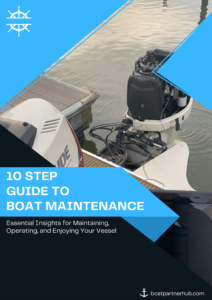Blog
How Can I Prepare For Boating Emergencies And Stay Safe On The Water?

Staying Safe on the Water: How to Prepare for Boating Emergencies and Enjoy Hassle-Free Adventures
Boating can be a thrilling and enjoyable experience, but it also comes with its fair share of risks and potential emergencies. Knowing how to prepare for boating emergencies and stay safe on the water is crucial for every boater. In this article, we will explore essential tips and strategies to ensure your safety while boating, as well as how to handle various emergencies that may arise. Whether you are a seasoned sailor or a beginner, this guide will equip you with the knowledge and confidence to navigate the waters with ease.
1. Conduct a Thorough Safety Check Before Departure
Before embarking on any boating adventure, it’s vital to conduct a thorough safety check to ensure your vessel is in top-notch condition. Inspect the boat’s hull for any signs of damage and verify that all essential equipment, such as life jackets, flares, fire extinguishers, and navigation lights, are in working order. Don’t forget to check the fuel levels and make sure you have enough for the trip. Being prepared from the outset can prevent potential problems and provide peace of mind.
2. Know the Weather Forecast
Weather conditions can change rapidly on the water, and being caught in a storm can be extremely dangerous. Always check the weather forecast before setting sail and monitor it regularly during your journey. If there are warnings of inclement weather, it’s best to postpone your trip or find a safe harbor until conditions improve.
3. Inform Others About Your Boating Plans
Always inform a trusted friend or family member about your boating plans. Let them know your intended route, estimated time of departure, and expected time of return. In case of an emergency, this information can be crucial for search and rescue teams to locate you promptly.
4. Take a Boating Safety Course
If you’re new to boating or want to brush up on your skills, consider taking a boating safety course. These courses cover essential topics such as navigation rules, emergency procedures, and first aid. Being knowledgeable about boating safety can make a significant difference in handling emergencies effectively.
5. Carry Essential Safety Equipment
Ensure that your boat is equipped with essential safety gear, including life jackets for every passenger, a first aid kit, a whistle or horn for signaling, and a throwable flotation device. Additionally, invest in a reliable marine radio or a satellite phone to communicate in case of emergencies when you’re out of cell phone range.
6. Maintain a Safe Speed and Distance
Speeding in crowded waters or close to other vessels is a common cause of accidents. Always maintain a safe speed and distance from other boats, swimmers, and fixed structures like docks and buoys. Adhering to speed limits and navigation rules helps prevent collisions and keeps everyone on the water safe.
7. Avoid Alcohol and Distractions
Boating while under the influence of alcohol is illegal and significantly increases the likelihood of accidents. Just like when driving a car, alcohol impairs judgment and reaction time on the water. Similarly, avoid distractions like using your phone excessively, as it can divert your attention from your surroundings and potential hazards.
8. Stay Hydrated and Protected from the Sun
Spending long hours under the sun can lead to dehydration and sunburn, which can impair your judgment and increase the risk of accidents. Drink plenty of water throughout the day and wear appropriate clothing, including hats and sunscreen, to protect yourself from harmful UV rays.
9. Be Cautious When Anchoring
When anchoring, be mindful of the depth and current of the water to ensure your boat remains stable. Use the appropriate anchor for your boat size and type, and always anchor from the bow to prevent the boat from swinging unexpectedly.
10. Know How to Handle Engine Troubles
Engine troubles can leave you stranded in the middle of the water, so it’s essential to know how to troubleshoot common engine issues. Familiarize yourself with the engine’s manual and basic maintenance tasks. If the problem is beyond your expertise, contact a professional for assistance.
11. Understanding Navigation Markers and Buoys
Navigation markers and buoys are vital for safe boating, as they indicate shallow areas, channels, and hazards. Learn and understand the various types of navigation markers to navigate effectively and avoid potential dangers.
12. Practice Man Overboard Drills
A man overboard situation can be life-threatening if not handled promptly and efficiently. Practice man overboard drills with your crew to ensure everyone knows their role and can act swiftly in an emergency.
13. Be Prepared for Fire Emergencies
Fires on board can escalate rapidly, so it’s crucial to have a functional fire extinguisher and know how to use it properly. Additionally, familiarize yourself with the location of the boat’s emergency shut-off switches and know how to stop the fuel flow in case of a fire.
14. Handling Medical Emergencies
In case of medical emergencies, having a well-equipped first aid kit and basic medical knowledge can be invaluable. Learn basic first aid procedures, such as treating cuts, burns, and performing CPR.
15. Developing a Float Plan
Creating a float plan involves providing a detailed itinerary to a trusted person on land. This plan should include information about your boat, passengers, the route you’ll take, and the expected return time. In case you don’t return as planned, this plan will help rescuers locate you more quickly.
Conclusion
By following these essential tips and guidelines, you can prepare for boating emergencies and stay safe while enjoying your time on the water. Remember always to prioritize safety, be prepared for unforeseen situations, and act responsibly as a boater. Being well-informed and equipped will ensure that your boating experiences are not only enjoyable but also safe for everyone on board.
FAQs
- Is boating safety course mandatory for all boaters? No, it’s not mandatory for all boaters, but it’s highly recommended, especially for beginners.
- What should I do if someone falls overboard? Immediately throw a floating device towards them, shout for help, and maneuver the boat to rescue them.
- Can I anchor my boat anywhere in the water? No, you should anchor in designated anchoring areas and ensure you’re not obstructing navigation routes.
- What should I do if my boat catches fire? Turn off the fuel source, use a fire extinguisher if safe to do so, and evacuate the boat as quickly as possible.
- How often should I check my safety equipment? Check your safety equipment before every trip and perform regular maintenance to keep them in good condition.


